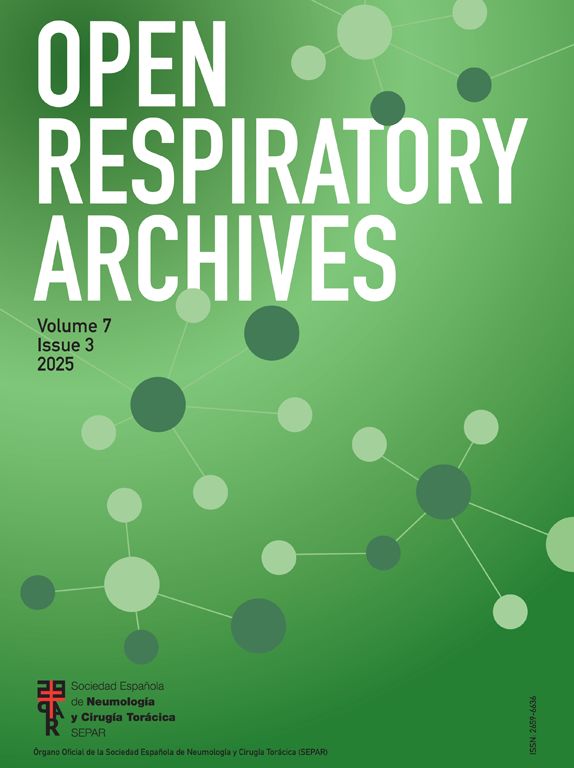In the narrative review by Bronte-Moreno et al.,1 the current evidence on impact of air pollution on asthma has been discussed. Among the main pollutants present in the air, particularly important is the one known as Particulate Matter (PM), specially the fine PM (PM2.5), due to their capacity to access deeper into the alveolus and reach the bloodstream.2,3
In this regard, the toxicity of PM, apart from its chemical composition, seems to be strongly related to its ability to generate reactive oxygen species (ROS), altering the balance of oxidants/antioxidants in cells and causing oxidative stress (OE).4 These species are known for their ability to oxidise lipids and proteins, as well as damage DNA&RNA, leading to an increased inflammatory response, which can derive in disease.5,6 Therefore, conceptually a new global parameter indicating the oxidation capacity of PM components is a promising alternative parameter for air quality with potential wider implications for human health. Such parameter is the Oxidative Potential (OP), which measures the ability of PM components to either oxidise or catalyse the oxidation of antioxidant target molecules that are present in biological fluids, such as ascorbic acid (AA) or reduced glutathione (GSH).7
However, there are still no conclusive findings on the effects of PM OP on respiratory health. In particular, some studies have been conducted in asthmatic children looking for associations between PM OP and airway inflammation measured as fractional exhaled nitric oxide (FeNO) but mixed results have been obtained depending on the OP assay: significant positive association for the reduced GSH8 and dithiothreitol (DTT) assays9 and non-significant for the AA8 and in vitro cellular assays.10 In adults, Janssen et al.11 found significant associations between some PM OPs from three acellular assays and markers of airway inflammation in healthy adults acutely exposed to air pollutants, and Delfino et al.12 found significant positive associations between PM OPs (cellular assay) and FeNO from elderly asthmatic subjects.
With this rationale, the ASTHMA-FENOP Study is currently underway (Spanish Ministry of Science and Innovation, Project code PID2020-114787RB-I00; Cantabrian ethical committee approval code 2020.475). It is a multidisciplinary project involving two research groups of the University of Cantabria and the Pneumology service of Hospital Universitario Marqués de Valdecilla (HUMV), with the objective of determining the association between the OP of PM and the OE and inflammation in asthma. In this study, adult stable asthma patients in maintenance treatment with inhalers (ICS±LABA) carry a portable PM sampler for 24h twice a year, quantifying the individual exposure to PM and its components in each patient. If a relationship between higher levels of PM OP, and OE and inflammation is found, a translational applicability of results in the form of biomarkers of activity and/or predictors of asthma progression is foreseeable. In terms of Public Health, the quantification of OP as a new metric and the implementation of regulatory measures aimed at its reduction would also have an important contribution in the control of asthma and other inflammatory diseases and their associated direct and indirect costs.
FundingThe ASTHMA-FENOP Study is supported by the Spanish Ministry of Science and Innovation (Project PID2020-114787RB-I00, funded by MCIN/AEI/10.13039/501100011033 and “ERDF A way of making Europe”).
Authors’ contributionsAll authors have contributed intellectually to the paper, meet the conditions of authorship, and have approved the final version of the paper.
Conflicts of interestAll have declared that there is no conflict of interest related to the content of this editorial. On your behalf I declare that the work is original and has not been previously published or under review by any other journal and complies with the standards of good clinical practice.
We thank all the ASTHMA-FENOP study collaborators (the lists can be found below).
ASTHMA-FENOP study group: José Manuel Cifrian Martinez, Juan Agüero Calvo, Beatriz Abascal Bolado, Carlos Antonio Amado Diago, Juan José Ruiz Cubillán, Andrea Exposito Monar, Laura Ruiz Azcona, Esther Barreiro Portela, Adriana Núñez Robainas.





